Day 1 :
Keynote Forum
Anil Mishra
Tulane University School of Medicine, USA
Keynote: A critical role of IL-18 in promoting pathogenesis of allergic diseases
Time : 10:00-10:45
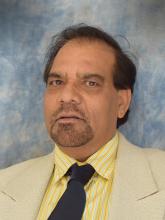
Biography:
Abstract:
Keynote Forum
Mohamad Miqdady
Sheikh Khalifa Medical City, UAE
Keynote: Cow’s milk protein allergy: Prevention & management
Time : 11:05-11:50
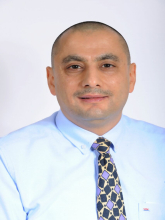
Biography:
Abstract:
- Allergy and Inflammation | Asthma | COPD | Food Allergy and Drug Allergy | Skin Allergy and Ocular Allergy | Immunotherapy | Clinical Immunology and Allergy | Infection and Immunity
Location: Abu Dhabi
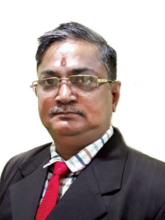
Chair
Naren Pandey
Allergy Asthma Centre, India
Session Introduction
Dana Al-Salah
AllerLiving Food Allergy Consultancy and Training, Jordan
Title: Challenges of food allergies and managing day to day life
Time : 11:50-12:20
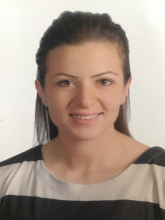
Biography:
Abstract:
Vincent St Aubyn Crump
Manchester University NHS Foundation Trust, United Kingdom
Title: Pollen food syndrome: Clinical utility of molecular allergy (component) testing in the management
Time : 12:20-12:50

Biography:
Abstract:
Rehab Bagadood
University of Leicester, United Kingdom
Title: Obesity enhances allergen-induced airway inflammation in murine model of Asthma
Time : 12:50-13:20
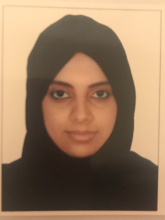
Biography:
Abstract:
Fuad Alrowaishdi
Ministry of Health, Saudi Arabia
Title: Food immunotherapy in children
Time : 14:20-14:50
Biography:
Abstract:
Bakhtiyar Azhken
Astana Medical University, Kazakhstan
Title: Morphological consequences for non-capsular lymphoid tissue in the case of malignancy of GERD (Barrett's esophagus)
Time : 14:50-15:20
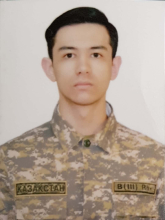
Biography:
Abstract:
Anwar A Sayed
Imperial College London, United Kingdom
Title: Immune Thrombocytopenia (ITP) pathogenesis and treatment: More than meets the eyes
Time : 15:20-15:50
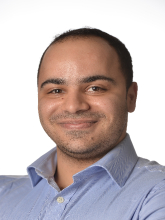
Biography:
Abstract:
Sana Waris
Aligarh Muslim University, India
Title: Structural and Immunological studies on Acetaldehyde modified human Immunoglobulin G: Implications of anti-Acetaldehyde-IgG in pathogenesis of oral cancer
Time : 15:50-16:20
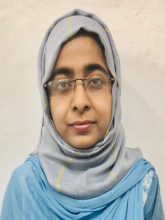
Biography:
Abstract:
- Neonatal and Paediatric Immunology | Immune Disorders | Diagnostic Immunology | Immunology and Immune System | Molecular and Cellular Mechanisms of Allergic Diseases | Prevention and Therapy|Market and Future of Therapeutics
Location: Abu Dhabi
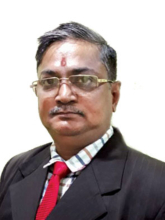
Chair
Naren Pandey
Allergy Asthma Centre, India
Session Introduction
Salwa Ibrahim
Thumbay Hospital, UAE
Title: Determinants of systemic manifestations of food allergy
Time : 09:45-10:15
Biography:
Salwa Abdelzaher Mabrouk Ibrahim is a consultant physician at Thumbay Hospital, UAE
Abstract:
Merin Kuruvilla
Emory University, USA
Title: Safety and outcomes of direct provocation testing to Amoxicillin without preliminary skin testing
Time : 10:15:-10:45
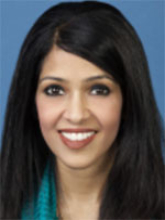
Biography:
Abstract:
Abdullah Aburiziza
Umm Al-Qura University, Saudi Arabia
Title: Prevalence of pediatric adherence level to Asthma medications
Time : 11:00-11:30
Biography:
Abstract:
Fuad Alrowaishdi
Ministry of Health, Saudi Arabia
Title: Anesthesia and pre-operation allergy
Time : 14:00-14:30
Biography:
Abstract:
Naren Pandey
Allergy Asthma Centre, India
Title: S.L.I.T Rush Immunotherapy-Faster reach to maintenance plateau with mixed allergen extract immunotherapy-India
Time : 14:30-15:00
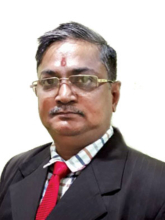
Biography:
Abstract:
- Workshop
Location: Abu Dhabi
Session Introduction
Nuha Nuwayri-Salti
American University of Beirut, Lebanon
Title: Expanded use of “Skin Window†generating pure leucocyte aggregates for wide variety of studies in a spectrum of conditions collectively classified as immune defective
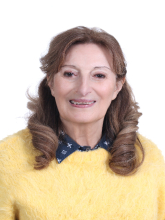
Biography:
Abstract:
- Video Presentation
Location: Offline
Session Introduction
Zoe Williams
My Allergy Kitchen, UK
Title: Diagnosis of food allergy in babies: A real-life story
Time : 15:00-15:15
Biography:
Abstract:
- e-Poster
Location: Offline
Session Introduction
Vasyl Y Velykyi
Taras Shevchenko National University of Kyiv, Ukraine
Title: The perspective putative test-system for the indication of immune response upon the breast cancer progression based on the Helix pomatia agglutinin
Time : 15:15-15:30
